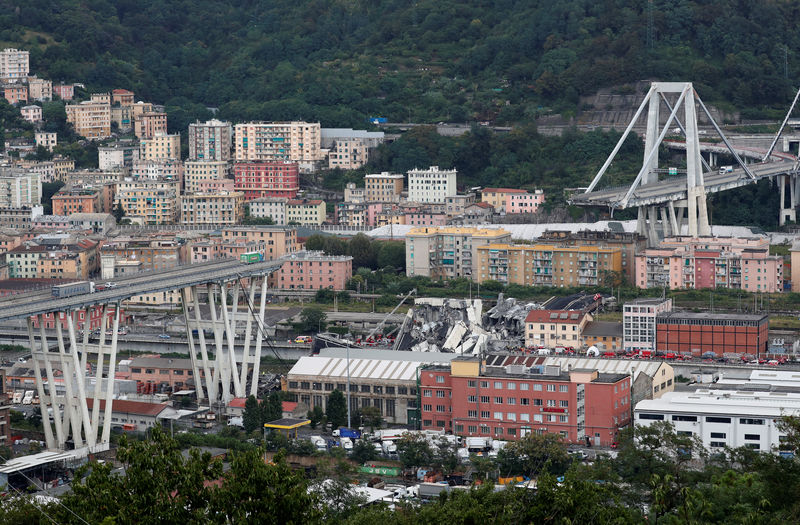By Geoffrey Smith
Investing.com -- The saga over Atlantia SpA (MI:ATL), the company whose shoddy maintenance of Italy’s highways led to the fatal collapse of a bridge in Genoa two years ago, appears to be drawing to a close, and while it isn’t a full-blown happy ending for the current generation of shareholders, it does at least avoid the worst-case scenario.
Atlantia stock rose over 20% in Milan by mid-morning on Wednesday after the announcement that a consortium led by state-owned bank CDP will buy a majority stake in Autostrade, the Atlantia unit that runs the relevant concession.
According to Reuters, a second phase will see Autostrade spun off from the group and listed, although Atlantia shareholders will receive shares in the new company. They will be heavily diluted, but not expropriated.
Emotional arguments over the justice of that solution aside, the immediate consequence of this is that Atlantia will not collapse under the weight of its debts, which need the cash flows of Autostrade to service them.
More importantly for Italian assets broadly, it signals that the Italian model, in which the state rewards a small number of private players for taking vast and often unfunded liabilities off its balance sheet, is still intact - if only because the country still hasn't found any better alternative. The one certainty out of the solution announced on Wednesday is that the debts of Autostrade, and the implicit financing needs of the country’s road arteries for the next decades, are kept out of the public accounts, allowing Italy to preserve the appearance of state solvency for longer.
The need for such creativity has been accentuated by the current debate over the EU’s new recovery fund, which signals a groundbreaking expansion of direct grants to individual member states.
Italy is poised to be one of the biggest recipients of such grants, but the negotiations are being held up by Dutch, Austrian and Scandinavian objections to pouring money into what they see as a bottomless pit. A messy bankruptcy of Autostrade would have made it much harder for the Italian government to persuade its frugal neighbors that it can be trusted to use future grants wisely.
And so one messy compromise – which allows the Benetton family, Atlantia’s largest shareholder, to continue enjoying profits from a state monopoly – paves the way for another at EU level. That compromise may or may not come at this week’s summit meeting. If the recovery fund can be agreed, then Italy can look forward to a more favorable assessment of its longer-term solvency, which would improve its chances of attracting long-term investment. That state of grace is still only a distant possibility, but – at least for now – the show has been kept on the road.
